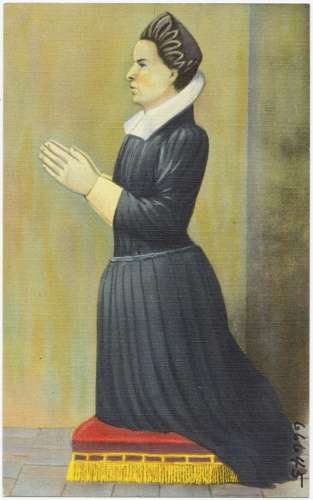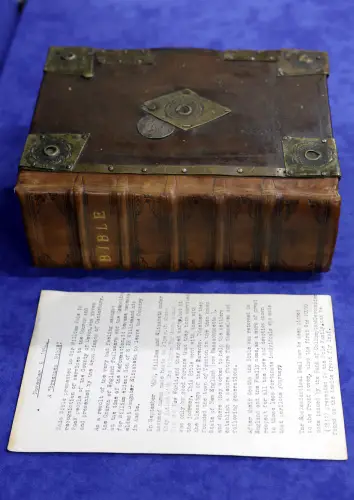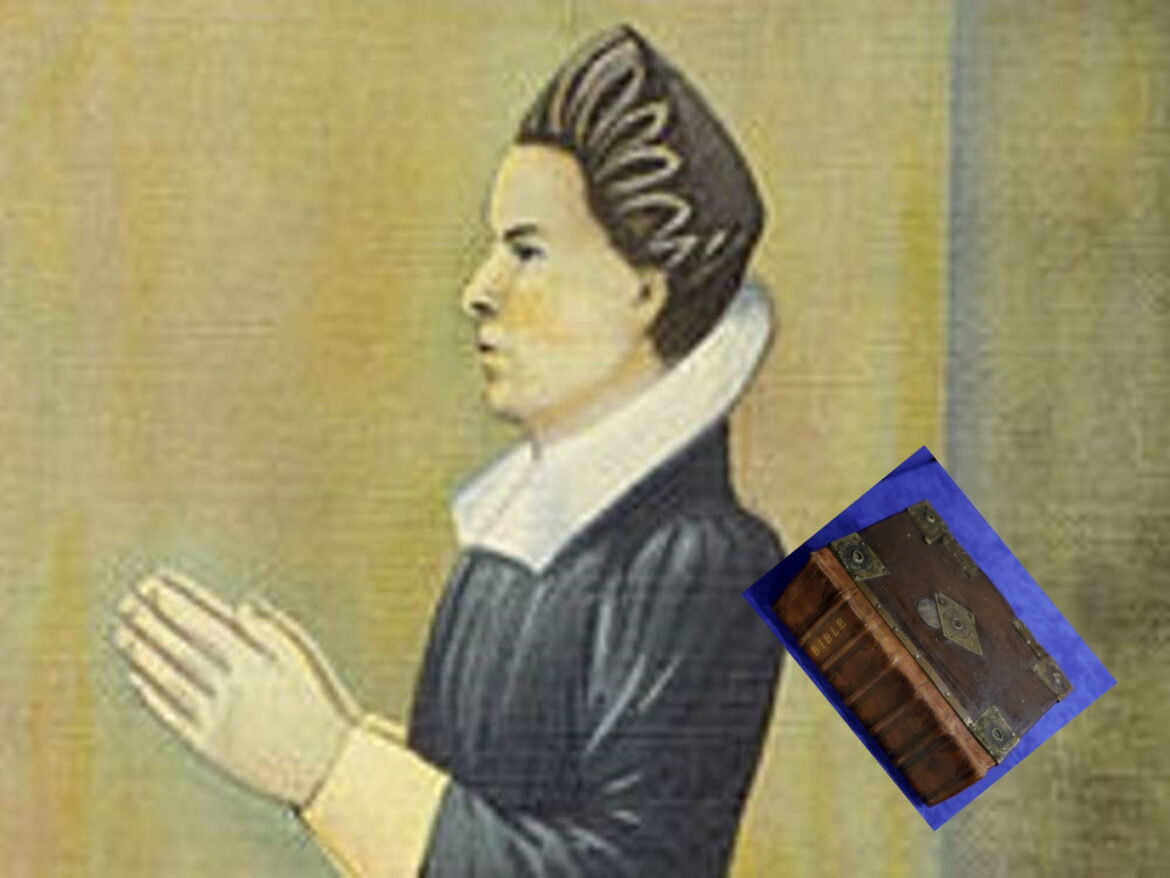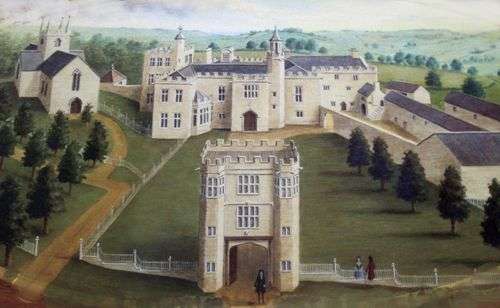Elizabeth Poole left the comforts of her family manor house in England to join the Pilgrims in Plymouth Colony.
She was 48, unmarried, rich and well-connected. Her family had come to England with William the Conqueror. King James I knighted her father, and Queen Elizabeth I knighted her maternal grandfather, Lord Chief Baron of the Exchequer.
John Winthrop called Elizabeth, a devout Puritan, “a gentlewoman, an ancient maid.”
Elizabeth then decided she wanted to convert Native Americans to Christianity. She would become the first woman to found a town in the Americas.

Foundress of Taunton. Courtesy Boston Public Library.
Elizabeth Poole
Elizabeth Poole left England on April 22, 1637 on the Speedwell with two friends, 14 servants, goods and 20 tons of salt for preserving fish. She also brought a Geneva Bible, which remained in her family for three centuries.
A sister and a brother, William, also migrated to Plymouth Colony. William and his family had probably already arrived when Elizabeth got there. Another sister married the Rev. Nicholas Street, one of the first ministers in Taunton.
Soon after she arrived, Elizabeth Poole bought a large tract of land in a settlement called Cohanett from Massasoit. A few Pilgrims had already settled there.
Winthrop wrote that she “endured much hardship, and lost much cattle.”
By the beginning of 1639, there were seven freemen in the settlement, probably with their families and servants and possibly others.
On March 3, 1639, Taunton was incorporated as a town. Within four years, 54 men between the age of 16 and 64 living in Taunton. A meetinghouse, the First Parish Church, was built on Church Green in 1640. In 1652, Elizabeth helped found an ironworks, one of the first in North America, on the Two Mile River.
Piety, Liberality, Sanctity of Manners
Elizabeth Poole died at the age of 65. She is buried in Taunton, and her gravestone reads:
Here rest the remains of Elizabeth Poole, a native of Old England, of good family, friends and prospects, all which she left in the prime of her life, to enjoy the religion of her conscience, in this distant wilderness; a great proprietor of the township of Taunton, a chief promoter of its settlement, and its incorporation in 1639-40; about which time she settled near this spot, and having employed the opportunity of her virgin state in piety, liberality, and sanctity of manners, died May 21, 1664, aged 65.
The Bible went back to her family, whose descendants of lived in the Shute-Barton Manor House until 2009. Then it became a National Trust property.

In 1950, the family sold her Bible to a collector from Northern Ireland. It was then scheduled to be auctioned on Jan. 10, 2023, in Belfast.
According to the auctioneer, “The Bible, because of its historic importance, is expected to attract much attention and is valued at between £5000-10,000. ”
This story last updated in 2023.




3 comments
I thought the Saugus Ironworks were started earlier.
[…] was descended from Samuel Bowman, a proprietor of Natick, Mass., one of the praying Indian towns of Plymouth Colony. Bowman returned to Worcester after King Phillip’s […]
[…] the Dutch Colony in New York. He soon abandoned the idea, however, and was living in the woods near Taunton, Mass. Members of the Pokanoket tribe visited Bradford and asked what they should do about Sir […]
Comments are closed.